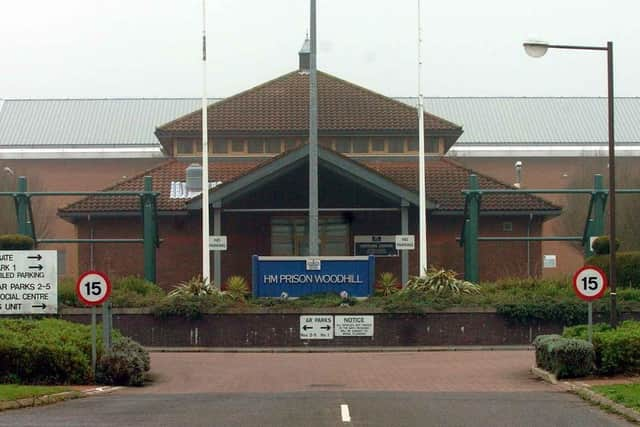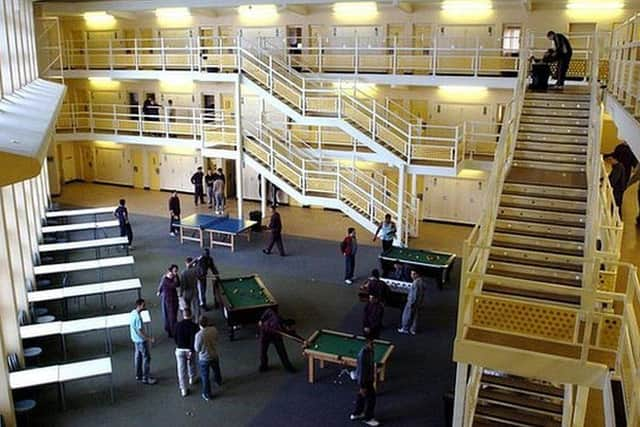Milton Keynes prison comes under fire again from inspectors
and live on Freeview channel 276
A new inspection of struggling Woodhill Prison in Milton Keynes has found many of its problems stem from staff shortages and inexperience.
The jail was once again was found by inspectors to be struggling with problems, including high violence and use of force by staff, a restricted daily regime for many prisoners, and poor access to work and education.
Advertisement
Hide AdAdvertisement
Hide AdHowever, most of the Buckinghamshire prison’s failings stemmed from a fundamental problem in recruiting and retaining staff, with more staff leaving than joining, the inspector found.


Charlie Taylor, HM Chief Inspector of Prisons, has now urged HM Prison and Probation Service (HMPPS) to support the energetic governor with more stable staffing at the prison.
The 30-year-old prison, which held just over 500 men when inspectors visited in September 2021, comprises a series of house blocks within a secure campus in Milton Keynes.
“Our findings at this inspection were disappointing,” Mr Taylor said. As in 2018 (the last inspection), “outcomes in safety and purposeful activity were poor, while outcomes in respect and rehabilitation and release planning had deteriorated and were now not sufficiently good.
Advertisement
Hide AdAdvertisement
Hide Ad“Against nearly all the main measures, the prison was not safe enough. Violence was higher than comparable prisons; use of force, though mostly legitimate, was also high; use of segregation was considerable; and there had been seven self-inflicted deaths since we last inspected. Self-harm was also high.”


Mr Taylor said it would be wrong to say the prison had done nothing to try to address these issues, but its work had yet to make a difference.
Prisoners were frustrated about the confidence and competence of staff and the inconsistency of their interactions with them. About a third of all officers at Woodhill had been recruited in the last 12 months, 40% were only in their second year and many supervisors were similarly inexperienced.
“Many staff were well-meaning and seemed to want to do a good job, but as a group they were not sufficiently effective. Standards were not maintained, and poor behaviour not addressed. Many prisoners told us that staff were either unable or unwilling to deal with their reasonable requests.” The report noted many instances of spontaneous violence against staff. Prisoners said this often came from frustration and, disturbingly, many said they had considered assaulting staff as a way of getting transferred out of Woodhill.
Advertisement
Hide AdAdvertisement
Hide AdMr Taylor said: “Whatever the problem at Woodhill – be it the safety of the prison, the confidence prisoners had in staff, the total inadequacy of the daily regime or weaknesses in the provision of services – the source seemed to be the inability to recruit and retain staff. This was the fundamental strategic priority that needed to be addressed.
He said leadership at Woodhill had huge challenges, but the governor “was both energetic and enthusiastic in her approach", and had shown considerable commitment to the establishment over time.
"It was clear to us that most staff were aware of her priorities," he added.
“HMPPS needs to take stock of what is happening at Woodhill and reflect on what it can do to support change. Local leaders need more support to address issues beyond their control and, most of all, there needs to be a deliverable local plan to recruit, retain and equip the staff needed to run the prison.”